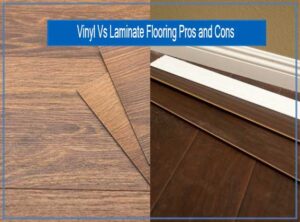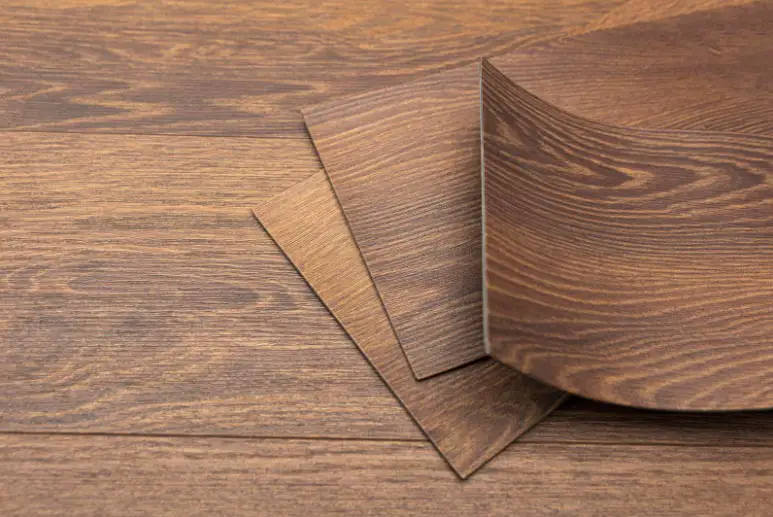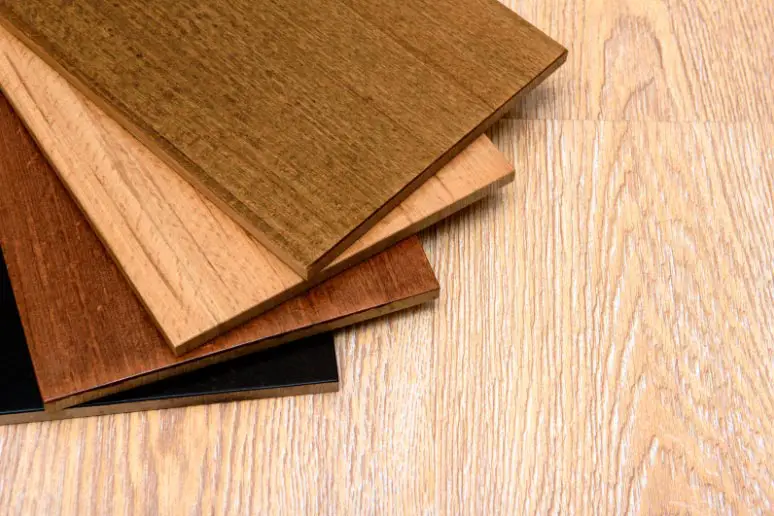
As more and more people are veering away from concrete floors, they are leaning towards appropriate replacements. The first option was wooden floors, but they run the risk of being easily damaged because of moisture.
So the priority has been a material of flooring that won’t be damaged easily by moisture, if at all. That’s where vinyl and laminate floors come into play.
At the first glance, both of these floors look the same. But their similarity goes far beyond only their looks. In many ways, both vinyl and laminate floors are very similar.
But, there are some noticeable differences between them as well, regarding things such as durability and cost. That is precisely when the debate of vinyl and laminate flooring arises.
So, of these two very similar floorings, what are the pros and cons of vinyl vs laminate flooring? which one should you choose? Let’s take a look below and find out.
Vinyl Flooring
Vinyl flooring is a kind of flooring that is made of entirely synthetic materials and has multiple layers of these synthetic materials. There is usually a core made of vinyl which is then overlaid with other synthetic layers.
Sometimes the bottom layer is made of cork or fiberglass. If it’s made of cork, then you don’t need another underlayment. So what are its advantages? What disadvantages should you look out for while choosing vinyl flooring? Let’s find out.

Pros Of Vinyl Flooring
Vinyl floorings are very advantageous if you are looking for a good-looking, waterproof material. Among the many advantages of vinyl flooring are:
1. Water And Heat Resistant
Vinyl floorings are made of materials that are entirely synthetic and retain no moisture whatsoever. Even if the floor is underwater for a long, long time, it won’t be affected one bit. This makes the vinyl floorings not only water-resistant but also waterproof.
The same can be said about heat as well. The temperature barely affects the vinyl layers, so they don’t change shape and size when the temperature increases or decreases. This makes them heat resistant as well. So if you are looking for flooring for your basement and kitchen, vinyl flooring is the way to go.
2. Can Be Cleaned In Every Way
Vinyl floorings are extremely easy to clean. If you want to perform regular cleaning, you can just use traditional methods such as brooms and vacuum cleaning. But if you need a way of thorough cleaning, you can easily use a wet mop without giving it a second thought. Since the vinyl flooring is waterproof, wet mops won’t do any damage to it.
3. Durability
Vinyl floorings are very durable. This is why it is placed in areas such as the basement and kitchen where the floor has high traffic as well as more extreme conditions than the rest of the house. No matter what the condition is, vinyl flooring will stand up to it.
4. Has A Long Life
Because the vinyl flooring is very durable, they are less susceptible to be damaged, be it external damage or damage to the materials due to old age. Most vinyl floorings last not only for years but decades, which is a big plus point.
5. Easy To Install
Vinyl flooring planks are very easy to install. It is so easy to install that even the homeowners themselves can do it themselves. Most of the time, all you need to do is to glue them to the floor side by side and that’s it. When flooring is easy to install, it brings the overall cost down by quite a lot, which is a big upside.
Cons Of Vinyl Flooring
Not everything with vinyl flooring is 100% perfect. It has some considerable downsides too. They are:
1. Are Quite An Expensive Upfront
Although the longevity makes it look like vinyl flooring costs a lot less than it should have, it can’t be denied that you have to spend quite a lot of money upfront.
2. Doesn’t Have A High Resale Value
If you ever decide to sell your vinyl flooring, the chances of it bringing a high revenue are very low.
3. Not Environment Friendly
Using flooring made of synthetic materials almost always comes at a cost. The cost is that these floorings aren’t very friendly to the environment. It doesn’t decompose and it releases toxins when burned.
4. Susceptible To Dents
Despite being quite resilient, the vinyl floorings in your homes can be damaged when heavy appliances are kept on them. This may cause dents on the flooring.
Laminate Flooring
Although the laminate flooring looks and feels like vinyl flooring, there is one major difference between these two. That is the core layer of the laminate flooring is made of natural material as opposed to the synthetic one of their vinyl counterparts.
This core layer is primarily made of various byproducts of wood which are bonded with resin. The 6 to 12-millimeter-thick flooring has a plastic uppermost layer.
Why should you choose laminate flooring for your home? What are its pros-cons? Let’s take a look below to find out.

Pros Of Laminate Flooring
Laminate flooring planks come with a lot of advantages, such as being made of natural material. Now let’s find out what other pros are there.
1. It Is Pleasing To The Eye
The very first thing people notice about a floor is how it looks. In this regard, laminate floors take the cake. They come in all sorts of designs and embossing, such as wood, stone, ceramic, etc. The mimicry of the laminate flooring is so good that it makes people think that it is wood, stone, or ceramic instead of what it is.
2. Environment Friendly
Nowadays, everything people use, they tend to use it keeping nature in mind. The laminate floorings are better than vinyl ones since their core layer is made of natural materials. Yes, they are not friendlier to the environment than things such as wood or linoleum, but between them and vinyl flooring, they have an upper hand.
3. Stain Resistant
Laminate floorings have a layer of transparent aluminum oxide as their topmost layer. This makes the flooring resistant to various stains such as beverage spillage and others.
4. Comfortable And Quiet
Laminate floorings have a very comfortable and warm feeling to them. This is even enhanced by an underlayment of the highest quality. If you have a foam underlayment or a felt one, it will not only feel extremely comfy but won’t make any hollow wooden sound at all.
Cons Of Laminate Flooring
Laminate floorings have their fair share of drawbacks as well, akin to everything else. They are:
1. Short-Lived
The lifespan of laminate flooring is much shorter than that of vinyl flooring. Once laminate flooring reaches the age of 10 years, you’ll most likely need to replace it.
2. Costs More Money Over A Longer Period
Despite being cheaper than vinyl floorings up front, laminate flooring costs more over a long period. This happens since they don’t have very long lives, they need to be changed every few years, which costs a lot when the total cost is taken into account.
My Take On It
If there’s anything to learn from the above comparative analysis of vinyl vs laminate flooring is that these two are quite similar in many ways and don’t have to be used as each other’s substitutes.
For areas that need more stubborn flooring, using vinyl flooring is better. And for the areas which are more visible than most, one should use laminate flooring.
This is Autem Decker. Main Author of ‘TheHomeDigs‘. You may not find her on the list of top 10 contemporary Canadian interior designers, but everyone who knows her says she was born to be an interior designer.
She makes her plan in her head and draws them in her years-old diary with a note in the corner. The way she plays with color and shape amazes us.
Connect Her On – Twitter